Life
Sign up for our newsletter
We summarize the week's scientific breakthroughs every Thursday.
-
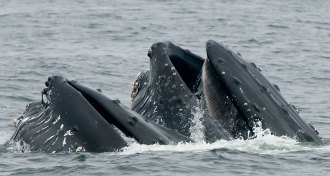 Animals
AnimalsWhales feast when hatcheries release salmon
Whales: “They’re 40 feet long and they’re feeding on fish that are the size of my finger.”
By Susan Milius -
 Neuroscience
NeuroscienceJust one night of poor sleep can boost Alzheimer’s proteins
Deep sleep may prevent the buildup of Alzheimer’s proteins.
-
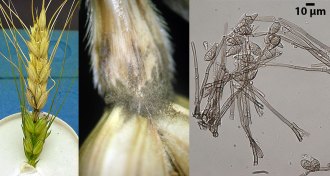 Genetics
GeneticsHow a crop-destroying fungus mutated to infect wheat
Study details how wheat got a new pathogen called blast fungus.
-
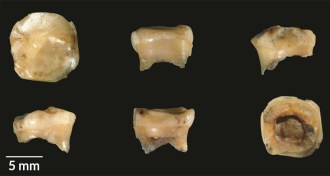 Anthropology
AnthropologyFossil tooth pushes back record of mysterious Neandertal relative
A Denisovan child’s fossil tooth dates to at least 100,000 years ago, researchers say.
By Bruce Bower -
 Plants
PlantsHermaphrodite wildflower has its own battle of the sexes
A new example of sexual conflict shows up in a plant with a troublesome pollinator.
By Susan Milius -
 Science & Society
Science & SocietyDive deep to discover unexpected connections
Readers often praise Science News for its brevity. But some ideas need more space, writes acting editor in chief Elizabeth Quill.
-
 Planetary Science
Planetary ScienceReaders intrigued by Mars’ far-out birth
Readers sent feedback on the Red Planet's formation, jumping genes and more
-
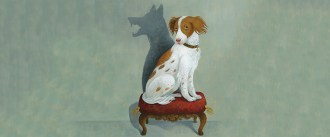 Genetics
GeneticsDNA evidence is rewriting domestication origin stories
DNA studies are rewriting the how-we-met stories of domestication.
-
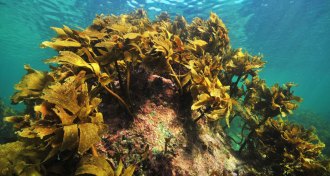 Plants
PlantsHow to eavesdrop on kelp
Sounds reverberating through a kelp bed can be linked to environmental factors, suggesting a low-key way to monitor undersea communities.
-
 Genetics
GeneticsDouble-duty DNA plays a role in birth and death
Coronary artery disease may be the price humans pay for improved fertility.
-
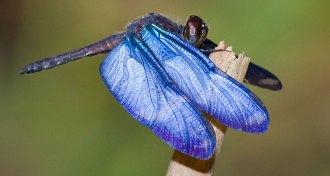 Animals
AnimalsThe blue wings of this dragonfly may be surprisingly alive
The wings of adult morpho dragonflies show tiny respiratory channels that may support a complex of nanostructures that shine blue.
By Susan Milius -
 Plants
PlantsPetunias spread their scent using pushy proteins
Scent molecules hitch a ride on a particular protein to escape flowers.